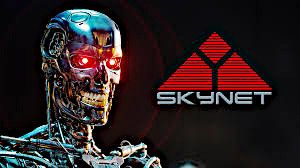Ah, the Internet of Things! As always, the Good the Bad and the Ugly.
The idea is to improve life by making devices aware of the environment and each other. The basic idea has been around a long time: in my youth (I don't remember the sixties), most computers lived in a purpose built building surrounded by acolytes and 2 or 3 engineers on site who kept the thing going. When Minicomputers arrived, better, but still not completely reliable, paying an engineer to idle about on site cost too much, so the machine would monitor itself and phone home if it detected a fault. Since then many mechanical controls like washing machine timers and thermostats have been replaced by electronic sensors coupled to management units; this generally makes the device more efficient and reliable, and cheaper to make. Although self contained until recently, they don't have to be.
Now cheap high-speed communications and microprocessors are almost universal, it's possible to extend connectivity to almost anything. Machines can report faults or that consumables are running short. And they can be remotely controlled by the owner, or respond to remote sensors and control systems, like the electrical supply system or a weather station. The machine can be almost anything, anywhere – your fridge, car, office photocopier, burglar alarm in a shed, pacemaker, or a smoke alarm in Grannies house. Stolen power tools could report their GPS location, or activate a camera. The possibilities are almost endless.
Good: owners benefit from improved control, security, faster fixes, save money and generally worry less about maintenance trivia and inconveniences.
Bad: bound to go wrong at times and likely to be applied for daft useless reasons, in incompatible ways, to the bafflement and irritation of everyone.
Ugly: loss of personal control, privacy & security issues including cyber-warfare and criminality. Most people not understanding any of it, will throw unnecessary wobblers and be conned galore.
Is IoT useful in the workshop? Yes, but not essential. Just as it's possible to enjoy model engineering without a internet connection, computer, spreadsheet, 3D CAD and CNC, there's no particular reason to jump at IoT. But, if the hobby takes you towards Arduino, radio-control, 3D-printing, or CAD/CAM etc, it's here already. Many opportunities.
This is another development where I feel the opinions of retired gentlemen aren't particularly useful. Although my career in Information Technology gives me an insight, I'm at least 10 years out of date. The value of my experience wanes by the day because I don't know which old issues have been fixed or what the new ones are. I'm afraid the pros and cons of this are for the next generation to decide, not us.

Dave
 Michael Gilligan.
Michael Gilligan.




